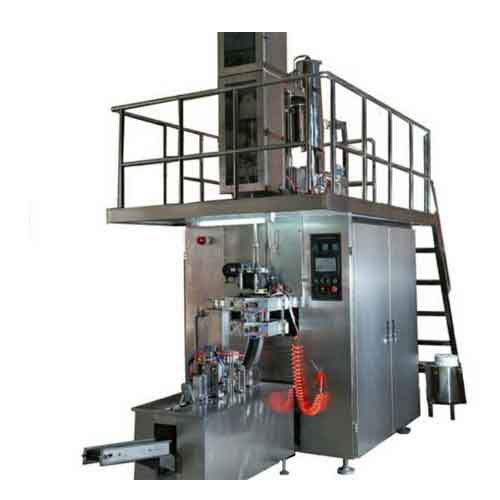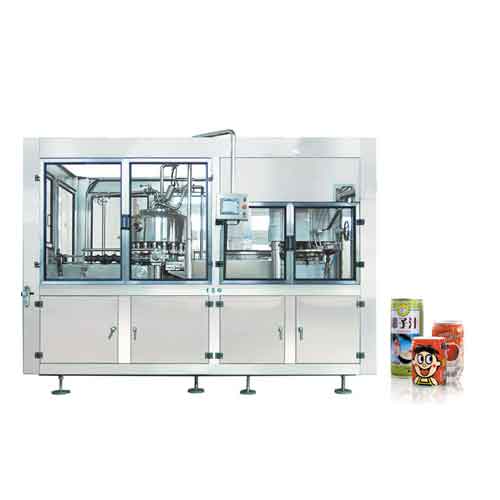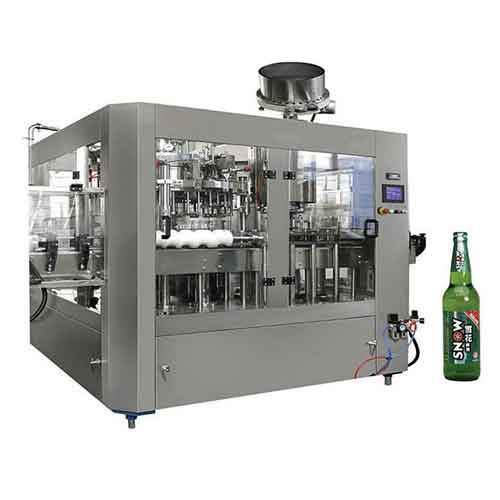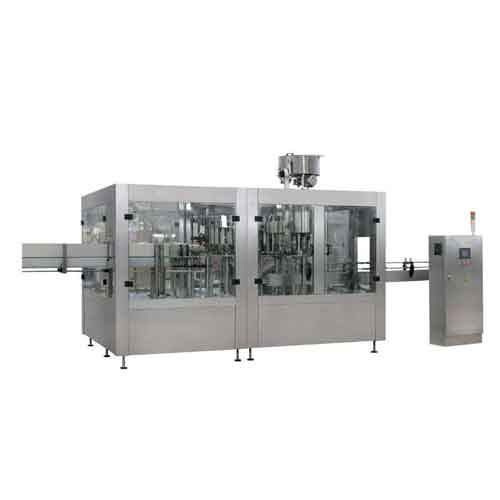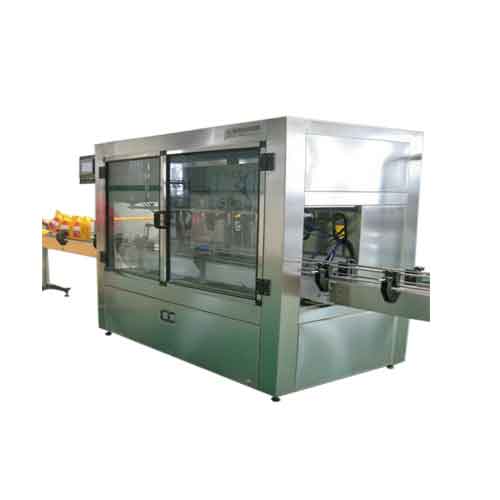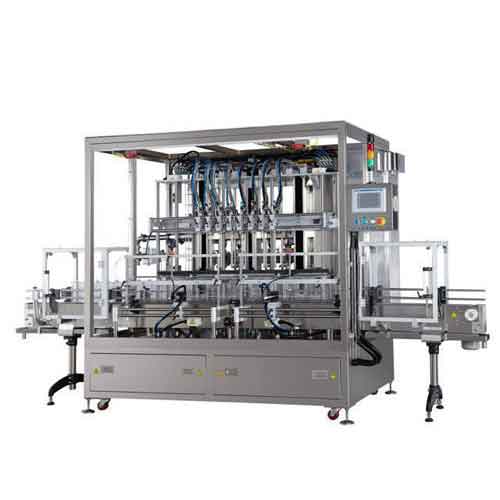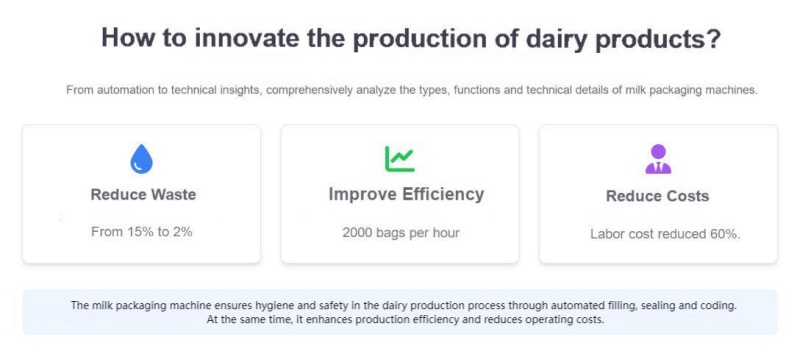
Ever wondered how that perfectly sealed milk pouch reaches your breakfast table with such precision? The answer lies in the heartbeat of modern dairy operations - milk packaging machines.
Milk packaging machines are automated systems that fill and seal liquid dairy products into pouches, bottles,tetra packs using sterilization, precision filling (300ml±0.5ml) and material-specific sealing technologies[^1]. These systems serve dairies, beverage makers and pharmaceutical companies handling liquid/powder products across 500-6000 bags/hour capacities, reducing labor costs by 60%.
Now let's slice through the jargon to show you exactly how these machines transform raw milk into supermarket-ready packages...
Ⅰ.What Makes a Milk Packaging Machine Work?
You might think these machines just squirt milk into bags, but the reality involves 5 precision-driven stages:1. Material Feeding - Rolled packaging film gets sterilized (optional)
2. Pouch Formation - Heat-sealed into precise bag shapes
3. Liquid Filling - Volumetric piston pumps fill ±0.5% accuracy[^2]
4. Sealing - Triple seals prevent leakage
5. Date Coding & Exit - Laser prints batch codes before discharge
| Component | Function | Failure Impact |
| PLC Controller | Machine brain controlling timing/sensors | Complete shutdown |
| Filling Pump | Measures exact liquid volume | Over/Under filling |
| UV Sterilizer | Kills 99.9% bacteria (optional) | Contamination risk |
| Conveyor Belt | Moves packages between stations | Production bottleneck |
Our engineers recently upgraded the filling nozzles with anti-drip valves - reducing product waste by 7% in yogurt applications.
Ⅱ.What kind of milk packaging machine would best suit your plant?
While "milk packaging machine" sounds singular, the options split into 4 key categories:1. By Orientation
- Vertical: Saves floor space (Good for 200-900ml packs). Suitable for small-scale dairy factories, it has a small floor area and is easy to install.
- Horizontal: Handles bulkier formats (150mm-2L family packs). Suitable for large-scale dairy factories, with stronger processing capacity and faster speed.
2. By Sterilization
- Aseptic: UHT milk requires $150k+ machines with H2O2 sterilization.Such as aseptic carton filling machines.
- Regular: For fresh/pasteurized milk under $35k
3. By Format
- Pouch Packers (Common in India/Africa)
- Bottle Fillers (US/Europe preference)
- Tetra Pack Lines (Premium shelf-stable milk)
4.By Automation
The degree of automation of milk packaging machines directly affects production efficiency, labor demand and ROI.
| Degree of Automation | semi-automatic | fully automatic |
| Description | Partially automated, requiring manual intervention | Fully automated, without manual intervention |
| Personnel requirements | 3-5 | 1 |
| Investment cost | Medium | High |
| Characteristics | Suitable for small and medium-sized enterprises, with lower investment costs but requiring more manual operations. | Suitable for large enterprises, with high production efficiency but high investment costs. |
| Applicable scenarios | Small and medium-sized enterprises | Limited budget | Small batch production | Large enterprises | Mass production | Pursuing high efficiency |
Although fully automated machines have a high initial investment, they can significantly reduce labor costs and improve production efficiency in the long run, making them suitable for enterprises pursuing long-term benefits.
5. By Viscosity
- Thin: Milk (<100cP)
- Thick: Yogurt/Honey (>5000cP needs piston fillers)
A Mexican client switched from bottles to stand-up pouches - cutting material costs by 40% while doubling shelf appeal.
Ⅲ.What Technical Specs Actually Matter?
Three spec sheets from different suppliers might look identical - until you probe these 5 hidden factors:1. True Capacity
- Claims of "2000+ bags/hour" often require:
- Perfect conditions (No operator breaks)
- Automated pouch forming
2. Steel vs. Coating
- 100% 304 stainless steel costs 15% more but lasts 2X longer
- Avoid machines with painted carbon steel parts
3. Certification Reality
- FDA approval ≠ machines comply
- Demand test certificates for:
- Food-grade materials
- Electrical safety (CE/UL)
4. Spare Part Availability
- Check lead times for:
- Filling pumps (Weeks vs. Days)
- Heat seal bars (Standard vs. Custom)
A Colombian dairy lost $120k/week because their "ISO certified" machine used uncertified sensors that failed inspection.
Ⅳ.Who Makes Reliable Milk Packaging Machines?
The market splits three ways:| Region | Price Range | Strengths | Weaknesses |
| China | $8k-$45k | Best value; Fast customization | Significant price fluctuations |
| Europe | $50k-$250k | Premium precision; Long warranties | Slow delivery (60-120 days) |
| India | $6k-$30k | Good for simple machines | Limited automation;Poor QC |
Our team recently helped a milk processor in Pakistan:
- Avoided a Europe machine overkill (saved $187k)
- Achieved 18-month ROI through faster packaging
Ⅴ. What are the application extensions of milk packaging machines?
The milk packaging machine is not only suitable for milk, but can also process various dairy products and similar fluid products.
Ⅵ. What are the market trends for milk packaging machines?
The milk packaging machine industry is developing towards a more intelligent, efficient, and environmentally friendly direction.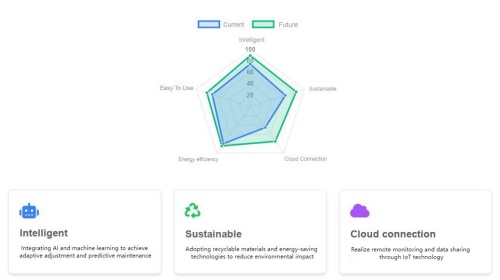
Ⅶ.Q&A
Q: What is the average service life of a milk packaging machine?A: With proper maintenance, the service life of a milk packaging machine is usually 8-10 years. Regular maintenance can significantly extend the lifespan of the machine.
Q: How to choose packaging materials that are suitable for my product?
A: When choosing packaging materials, it is necessary to consider the characteristics of the product, shelf life requirements, and cost budget. PE film is suitable for most products, while aluminum foil is suitable for products that require long-term storage.
Q:What is the energy consumption of the milk packaging machine?
A:The energy consumption of different models of milk packaging machines varies greatly, usually consuming about 1-3 kilowatt hours per hour. Choosing energy-saving models can significantly reduce operating costs.
Final Thoughts
Choosing milk packaging machinery isn't about specs alone - it's finding the intersection between your budget, product needs, and supplier trust.Union Machinery has been engaged in food machinery customization services since its establishment in 2014, according to customer needs for you to tailor suitable machinery and equipment, for more product information, please refer to: https://www.hnunmachinery.com/Automatic-juice-filling-machine/Aseptic-Carton-filling-machine.html More video information see view: 200ml Aseptic Carton Filling Machine;Our expertise and advantages will bring you more opportunities and development space.
For personalized, industry-tailored advice and to explore state-of-the-art solutions, please don't hesitate to contact us at info@unmachinery.com
[^1]: Volumetric accuracy requirements based on FSANZ liquid packaging regulations.
[^2]: Food-grade material specifications referenced from EU No.10/2011 for plastics.

